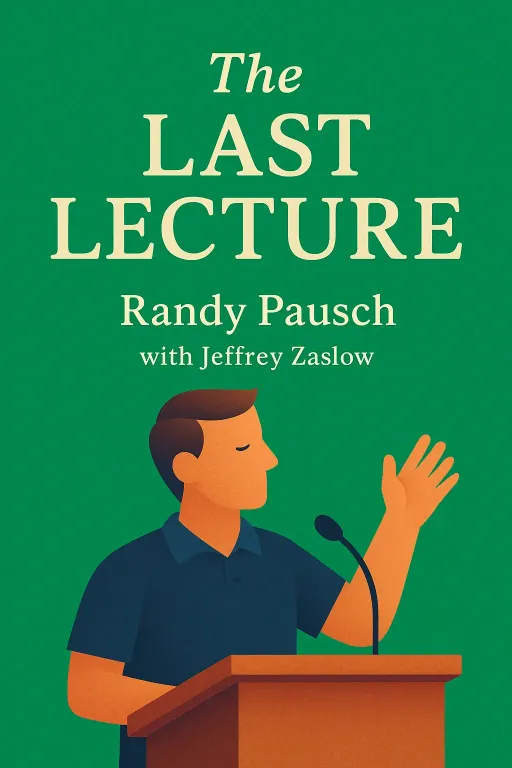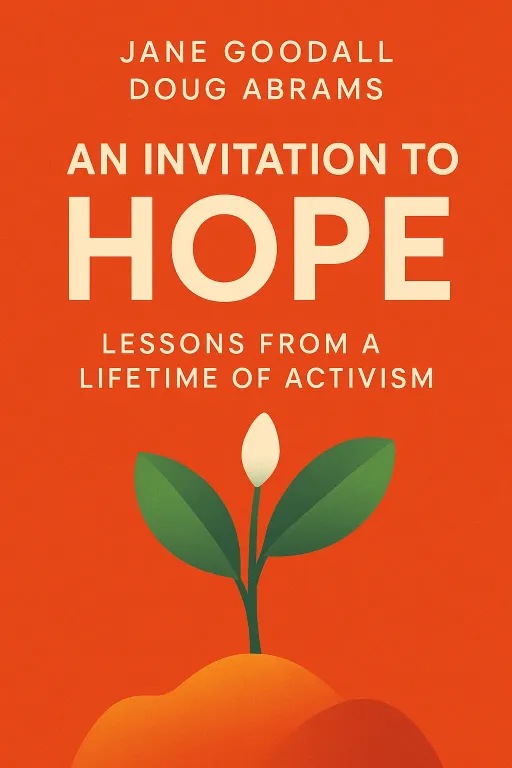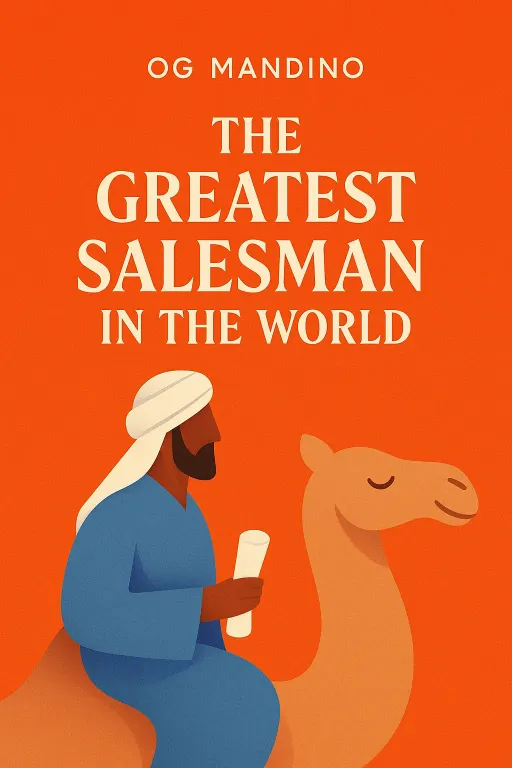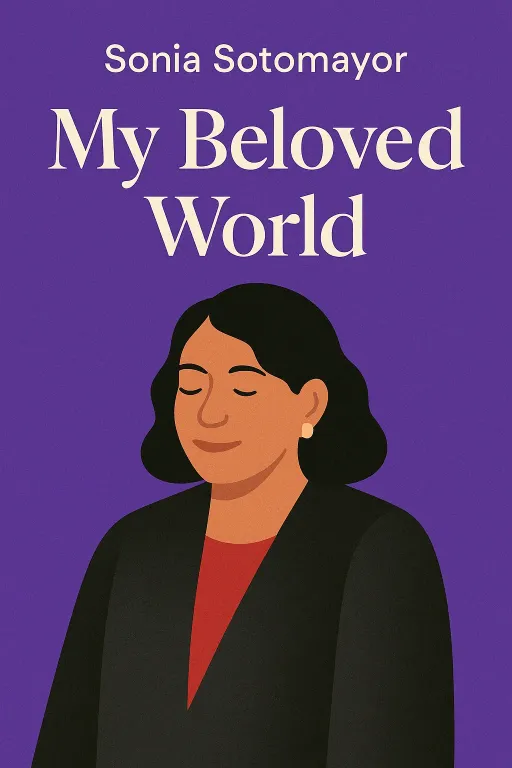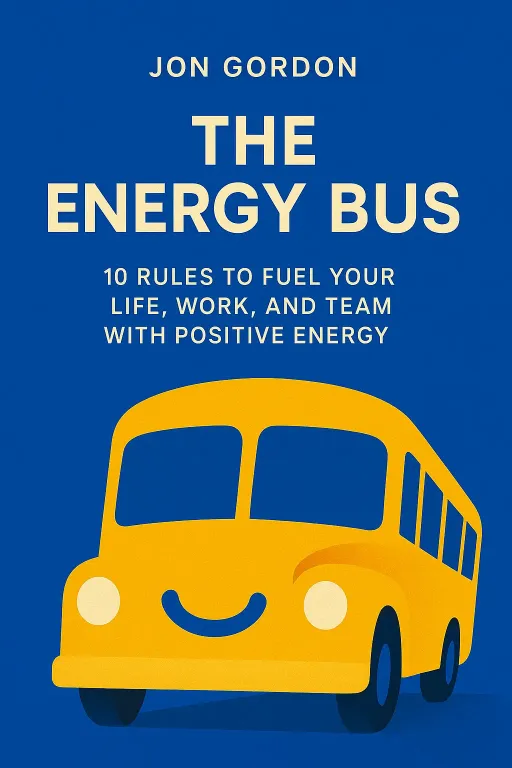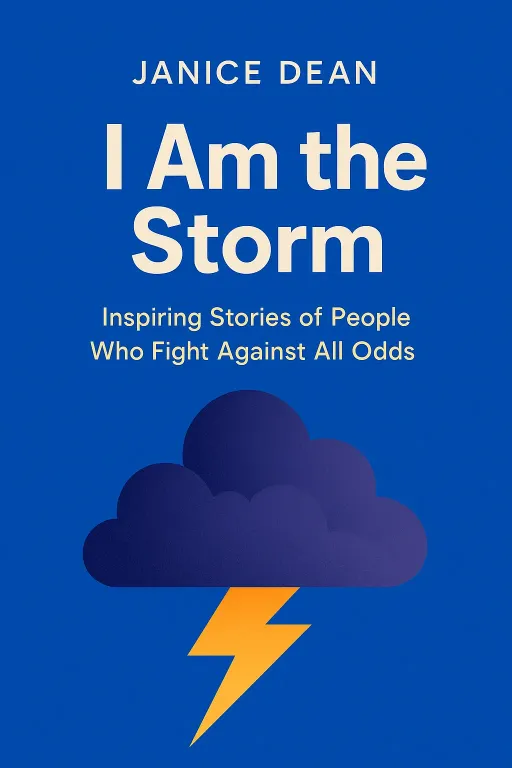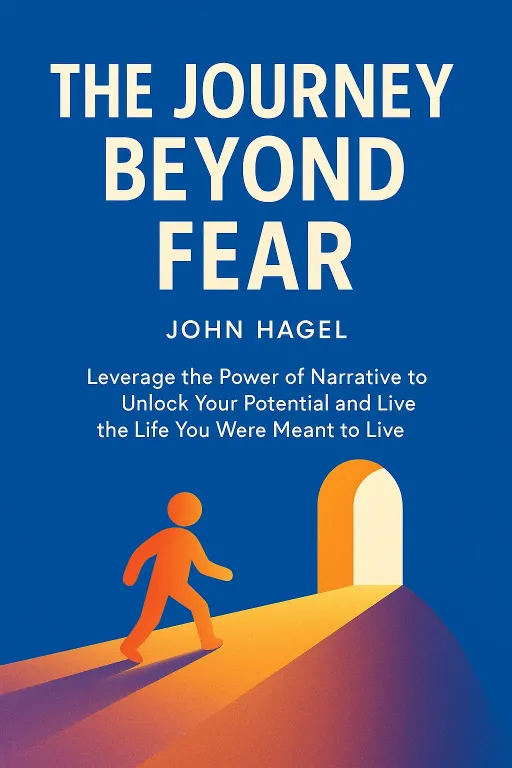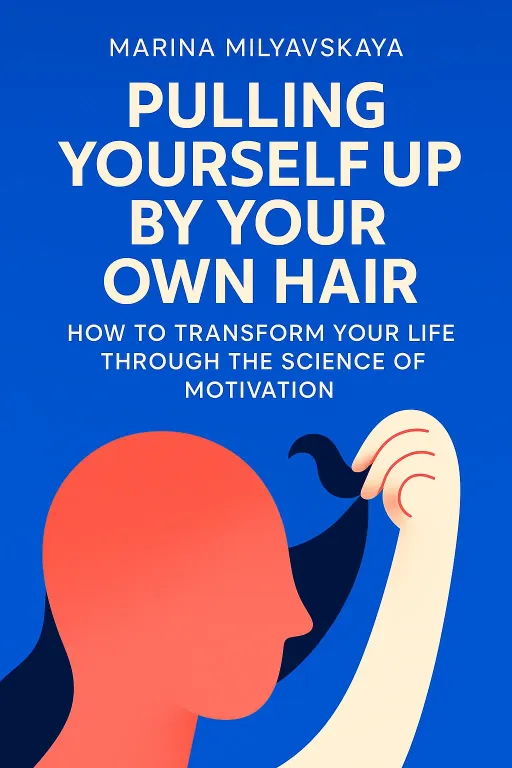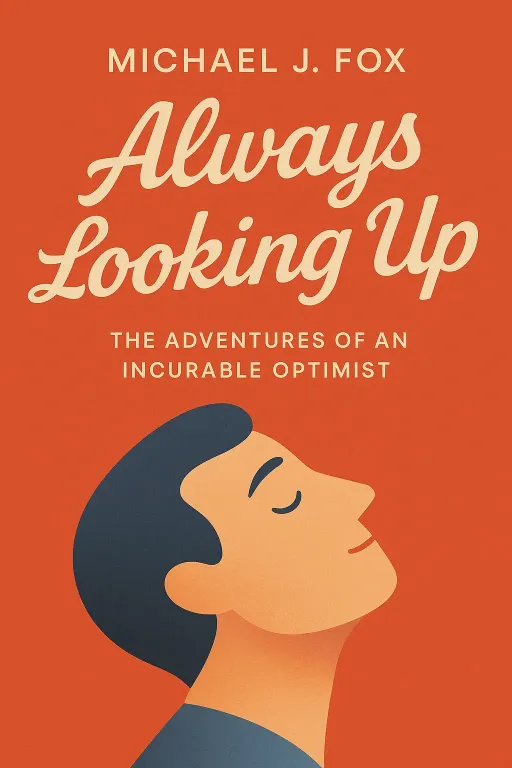
Optimism as a Weapon
12 minThe Adventures of an Incurable Optimist
Golden Hook & Introduction
SECTION
Michelle: Most people think a devastating diagnosis is the end of a story. For Michael J. Fox, it was the explosive beginning of his real career—one that had nothing to do with acting and everything to do with picking a fight with the entire political establishment. Mark: Wow, that’s a heavy way to start. His real career? I mean, we’re talking about Marty McFly. The guy from Spin City. He was one of the biggest stars on the planet. What could possibly top that? Michelle: That’s exactly the question at the heart of his memoir, Always Looking Up: The Adventures of an Incurable Optimist. What’s fascinating is that he wrote this book nearly a decade after he retired from acting full-time. This isn't a raw, immediate reaction to his Parkinson's diagnosis. It's a reflection from a man who has already lived through the fire and is looking back to figure out what he built from the ashes. Mark: Okay, so this is less about the shock of the fall and more about the climb back up. I’m intrigued. So where does that climb begin? What did the end of his acting career actually look like? It couldn't have been a simple decision to walk away from a hit show like Spin City. Michelle: It was anything but simple. It was a slow, grinding, daily battle. And it’s in that private struggle that we see the seeds of his new identity being planted.
The Alchemy of Identity: From Actor to Advocate
SECTION
Michelle: The book is filled with these small, gut-wrenching moments that reveal the daily reality of what he was dealing with. There's one story in particular that stands out. He’s on the set of Spin City, rehearsing a scene with his co-star, Michael Boatman. The scene is simple: he just has to walk through a doorway. Mark: Right, something an actor does a thousand times. Michelle: Except he can't. He gets to the threshold and his body just freezes. His brain is screaming "walk," but his feet are glued to the floor. It’s a classic Parkinson's symptom called "freezing." Boatman is standing there, waiting, and Fox, in a moment of sheer frustration, just bluntly tells him to move. Mark: Oh, man. That must have been so awkward and humiliating. How did his co-star react? Michelle: Well, Boatman was understandably confused and a bit taken aback. But later, Fox pulled him aside and explained. He said his brain sometimes struggles with spatial relationships, like the frame of a doorway, and he needs an external stimulus to break the freeze. He needed Boatman to move so his brain could recalculate. They ended up laughing about it, but can you imagine the psychic energy it took to do that day after day? To perform as a quick-witted, physically comedic character while your own body is in open rebellion? Mark: I can't even begin to. It’s the sheer exhaustion of it all. The constant management, the hiding, the explaining. It sounds less like a job and more like a covert operation. Michelle: Exactly. He describes it as a constant war against dyskinesias—the uncontrollable, jerky movements caused by his medication. He’d have to time his meds perfectly to be "on" for filming, but not so "on" that he was flailing around. He’d stuff his hands in his pockets to hide the tremors or lean on furniture to steady himself. He was acting on two levels: playing the character, and playing a person who didn't have Parkinson's. Mark: That’s an incredible amount of pressure. It’s amazing he lasted as long as he did. What was the final breaking point? There must have been a moment where he just said, "I can't do this anymore." Michelle: There was. And it’s such a beautiful, quiet story. It wasn't some dramatic breakdown on set. It happened on New Year's Eve, 1999. He was on vacation with his family on the island of St. John. He describes this bone-deep exhaustion from the daily battle. He goes snorkeling, and he’s just floating in the water, watching the sea life. Mark: Trying to escape it all, I imagine. Michelle: Precisely. And while he's underwater, he sees a giant sea turtle. He just watches it for a while, gliding effortlessly through the sea grass, completely at peace and in control of its movements. There’s this profound sense of grace and ease. He gets out of the water, walks over to his wife, Tracy, and says, almost casually, "I'm leaving the show." Mark: Whoa. Just like that? After seeing a turtle? Michelle: Just like that. And her response is what makes the story so powerful. She doesn't ask why, she doesn't argue. She just looks at him, says one word—"Good"—and gives him a huge hug. It was the permission he needed. In that moment, he knew he was making the right choice. The contrast between the turtle's freedom and his own struggle was the final piece of evidence he needed. Mark: That’s an incredible moment of clarity. It’s one thing to decide to leave, but it's another to figure out what's next. Was he just... unemployed? How do you go from being a global superstar, the face of blockbuster movies and hit TV shows, to... what? What does that void even look like? Michelle: That’s the core of the book, and it’s where his journey gets really compelling. He didn't fall into a void. He built a bridge. He took all that energy he was using to fight his body on set and redirected it. He had already gone public with his diagnosis a couple of years earlier, so he wasn't hiding anymore. The first step was realizing he wasn't just Michael J. Fox, the actor. He was now a representative for a massive community of people living with this disease. Mark: So the new identity wasn't something he chose, it was something that was kind of thrust upon him by circumstance. Michelle: Exactly. And instead of resisting it, he leaned into it. He started the Michael J. Fox Foundation. But he didn't want it to be just another celebrity charity. He brought a business-like, almost aggressive mentality to it. He met with financial experts, he recruited a CEO from the corporate world, Debi Brooks, and he famously told his advisors, "I need you to help me go out of business." His goal wasn't to manage Parkinson's; it was to end it. Mark: "Help me go out of business." I love that. It’s such a clear, powerful mission statement. It’s not about legacy; it’s about results. Michelle: And that’s what separates this from a typical memoir. The identity shift wasn't just internal. It became external. It became an organization, a political force. And this is where his philosophy of "incurable optimism" gets really interesting, and frankly, very controversial.
Optimism as a Weapon: Redefining Hope and Action
SECTION
Mark: Okay, I'm glad you brought that up. The phrase "incurable optimist" can sound a little... saccharine. A little too "live, laugh, love" for a degenerative neurological disease. Is it just a positive mindset, or is there more to it? Michelle: Oh, it's much more. For Fox, optimism isn't a feeling; it's a strategy. It's a tool for action. He argues that hope isn't just wishing for the best. He quotes Christopher Reeve, saying hope is the product of knowledge and projecting where that knowledge can take us. It’s about seeing a path forward and taking it. And for him, that path led directly into the political arena. Mark: How so? Fundraising for research is one thing, but politics is a different beast entirely. Michelle: The beast was stem cell research. In the early 2000s, it was one of the most contentious political issues in America. Scientists believed it held the key to curing diseases like Parkinson's, but it was fiercely opposed by social conservatives due to the use of embryonic stem cells. President Bush had severely restricted federal funding, and Fox saw this as a massive roadblock to a cure. Mark: So his optimism wasn't just about his personal outlook. It was about believing he could actually change national policy. That’s a bold leap. Michelle: It was a huge leap. And it culminated in the 2006 midterm elections. He decided to actively campaign for candidates who supported stem cell research. This led to the moment that truly tested his entire philosophy. He filmed a campaign ad for a Missouri Senate candidate, Claire McCaskill. Mark: I think I remember this. It caused a huge stir. Michelle: A firestorm is more like it. The ad is incredibly raw. It's just him, speaking directly to the camera. But because of his dyskinesias, he's constantly in motion—swaying, rocking, his head jerking. He’s not trying to hide it; he's showing the reality of the disease and saying, "This is what's at stake." Mark: He’s using his own vulnerability as a political statement. Michelle: Exactly. And the opposition went on the attack. The conservative radio host Rush Limbaugh went on air and accused Fox of either acting or having intentionally gone off his medication to exaggerate his symptoms for political gain. He mimicked Fox's movements on his show's video feed, mocking him. Mark: Hold on. That's a brutal, personal accusation. To say he's faking the very symptoms of the disease he's built his life around fighting... that's beyond cynical. How does "incurable optimism" even begin to deal with that? Does he fight back? Does he retreat? This feels like the ultimate test of his entire philosophy. Michelle: It was the ultimate test. And his response is a masterclass in his philosophy of action. He didn't get into a mud-slinging match with Limbaugh. He went on the news with Katie Couric and calmly explained the science. He described how the movements were a side effect of the very medication that allowed him to function. He turned a personal attack into a national teachable moment about Parkinson's disease. Mark: So he didn't fight fire with fire. He fought it with facts and dignity. Michelle: And it worked. The backlash against Limbaugh was immense. People were appalled. The controversy ended up drawing even more attention to the cause. It completely backfired on his opponents. Claire McCaskill won her Senate race, and many political analysts credit that ad, and the subsequent controversy, as a major turning point. He took one of the ugliest personal attacks imaginable and used its energy to propel his cause forward. That’s not passive, feel-good optimism. That’s optimism as a weapon. Mark: It’s like political aikido. He used the force of the attack against his attacker. It reframes the whole idea of what it means to be strong. His power didn't come from being stoic or unaffected. It came directly from his visible vulnerability. Michelle: That is the absolute core of it. And it connects everything back to that first big idea of identity. If he were still "Mike the actor," trying to project an image of perfection, that attack might have destroyed him. But because he had already embraced this new identity as "Mike with PD," an advocate defined by his reality, the attack had no power. It just made his point for him.
Synthesis & Takeaways
SECTION
Michelle: When you put it all together, you see that the identity shift was the necessary foundation for his activism. The loss of his old life is what gave his new purpose its weight and authenticity. His optimism wasn't the naive belief of a healthy, privileged star saying "look on the bright side." It was the hard-won, battle-tested conviction of a man who had been through the wringer and had come out the other side with a clear mission. Mark: It’s a powerful idea. That true influence doesn't come from projecting an image of invincibility, but from having the courage to show your scars. The thing that was supposed to be his greatest weakness—his disease—actually became his greatest source of strength and credibility. Michelle: And that’s the ultimate lesson of Always Looking Up. The book got very positive, if sometimes mixed, reviews from readers. Some found the relentless optimism a bit much, which is understandable. But I think they might be missing the point. The optimism isn't the destination; it's the vehicle. It's the engine that drove him from the despair of a diagnosis to the front lines of a national political battle. Mark: That makes so much sense. It makes you wonder what fights we avoid in our own lives, not because we can't win them, but because we're afraid of looking weak or imperfect in the process. We want to wait until we're "ready" or "strong enough," but maybe the strength is found in starting the fight anyway. Michelle: I think that's a perfect takeaway. It’s a challenge to all of us. What unexpected door has a challenge opened for you? It’s a question worth pondering. We’d love to hear your thoughts on this. Join the conversation with our community online. Mark: It’s a profound and surprisingly tough-minded book, disguised as a feel-good memoir. A story of turning a personal tragedy into a public triumph. Michelle: This is Aibrary, signing off.
